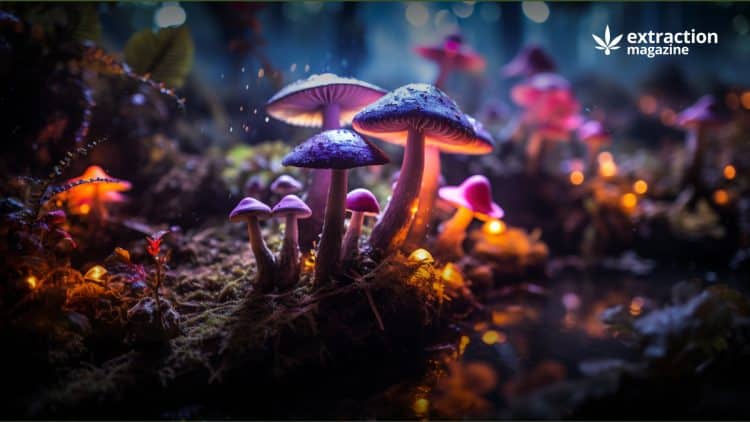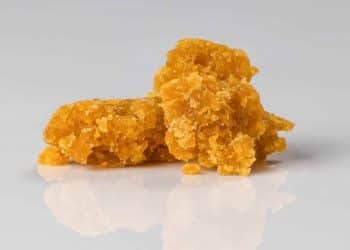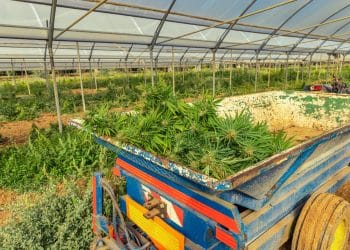Magic mushrooms, and psychedelics altogether, can be a double-edged sword that’s extremely sharp on both ends. And as is usually the case with anything health-related, and rightfully so, it’s the wrong end and its dangers that dictate government policies. Even if the upside tends to be much likelier statistically. Even if only 1 in every, say, 10 people might have a bad trip with potentially life-threatening, long-term implications, that is still 1 too many.
This is why legalizing magic mushrooms isn’t as simple as legalizing cannabis. And the increasing public demand for it has been met with pushback from the government.
In Canada, the situation is clear: magic mushrooms are following the footsteps of cannabis and we will, highly likely, live to see the legalization, at some point. it was pretty clear when the first mushroom dispensary in Toronto opened its doors, and it’s even clearer now.
In the US, the psychedelic movement is gaining momentum, slowly, but surely, and more importantly, mindfully. Officials are looking into ways to make psilocybin, the “magic” in magic mushrooms, legal and safe at the same time.
Underneath are the states and cities where magic mushrooms are or are set to be legal or decriminalized.
But Before We Continue, An Important Distinction…
It’s important to note that just like legalization and decriminalization have subtle differences. Not all forms of decriminalization are made equal.
A drug may not be decriminalized outright, but given a low priority status. This allows law enforcement to focus on more pressing issues. While decriminalization and a low-priority status work out largely the same in practice, in theory, the former is official. Whereas the latter is unofficial and still leaves some leeway for the law enforcement to prosecute psilocybin-related activities.
States
Oregon
Oregon made history on November 3. Then voters gave the green light to the Oregon Health Authority’s (OHA) proposed psilocybin therapy program for guided psilocybin sessions in specialized centers for adults over 21, starting in 2023. Guides must have a high-school diploma and go through a state-approved educational program.
It’s important to note that cultivating, selling or gifting magic mushrooms is still very much illegal.
Perhaps the credit for this win is due less to Oregon’s attitude toward psilocybin itself and more to Oregon’s attitude toward drugs altogether. Despite the personal use ban, the state decriminalized the possession of drugs, including up to 12 grams of psilocybin. But it’s still a win for magic mushrooms, nevertheless.
Also, Oregon is approaching the legalization of magic mushrooms with the right in-depth analysis in order to minimize risk factors. OHA is actually in the process of refining its proposed program, which includes back-and-forth communication with the public.
On a public comment forum in a host of open meetings, many doctors, lawyers and physicians expressed their support of the initiative, but had some issues with the verbiage of the official proposal.
One such issue was patient eligibility and the factors that would negatively impact it, namely prior convictions and how long they’re taken into account.
“It doesn’t make a difference to public health if someone has a drug conviction 1 year, 11 months ago or 2 years, 1 month ago, doesn’t matter, that just rules for the sake of rules,” Dr. Peter Addy, a clinical psychologist and licensed psychotherapist.
Another concern that was voiced was a patient’s allowed company, or rather the lack thereof.
“I urge you to make it easier for people to bring loved ones and other people with them to psilocybin servicers, which can increase comfort and safety and that can be achieved by expanding the definition of ‘client support person’,” says Mason Marks, professor at Harvard Law.
Coffee and nicotine being treated as prohibited intoxicants during psilocybin treatment was another sticking point.
“The committee’s next hearing will be Friday, December 16. The rules have to be finalized by the end of this year and OHA plans to start accepting applications for psilocybin services or manufacturing licenses on January 2 of next year,” reports Emma Jerome for KOIN 6.
Colorado
Like Oregon, Colorado voted to legalize psilocybin, along with psilocin, another key psychedelic component of magic mushrooms, as well as DMT, ibogaine and mescaline. And like Oregon, Colorado prohibits retails sales and use in public.
Unlike Oregon, however, Colorado does allow personal use, growing and sharing.
Texas
Texas, on the other hand, signed off on a bill to fund a psychedelic medical trial, exploring psilocybin’s potential to alleviate war veterans’ PTSD. The trial will be undertaken by the newly established Center for Psychedelic Research and Therapy as its first initiative.
Cities
Decriminalization can also start on a city level, in fact, it tends to be more achievable. Baby steps, basically.
Here are the cities that have either decriminalized magic mushrooms or made them their law enforcement’s lowest priority.
Denver, CO
In May 2019, Denver became the first US city to decriminalize magic mushrooms and ignited the psychedelic legalization movement.
San Francisco, Oakland and Santa Cruz, CA
Oakland followed Denver’s footsteps and decriminalized psilocybin and other psychedelics in June 2019.
Santa Cruz and San Francisco, on the other hand, voted for magic mushrooms and other psychedelics to go at the bottom of their respective law enforcements’ priority lists in January 2020, and September 2022, respectively.
Washington, DC
Natural psychedelics have been Washington’s law enforcement’s lowest priority since November 2020.
Seattle and Port Townsend, WA
Seattle made “entheogen-related activities” one of its enforcement’s lowest priorities in October 2021. Port Townsend followed suit two months later.
Somerville, Easthampton, Northampton, and Cambridge, MA
Between January and October 2021, those four cities made prosecution of entheogenic-plants-related offences their law enforcements’ lowest priority.
Detroit, MI and Washtenaw County, MI
Detroit also made entheogenic plants its law enforcement’s lowest priority in November 2021.
Washtenaw County has made it clear it’s not interested in prosecuting entheogenic-plant use or possession.
Canada
Canada is slowly lifting the taboo over psychedelics, drug by drug, regulation by regulation. However, certain exemptions and exceptions serve as doorways and sometimes even loopholes, while most of them remain illegal.
Psilocybin is still prohibited by the Controlled Drugs and Substances Act (CDSA). However, the City of Vancouver aims to decriminalize the possession of up to 20 grams of magic mushrooms within its borders. Its application for a Section 56 exemption is pending.
Why The List Should Probably Be Longer
The list of US cities and states where magic mushrooms are legal or decriminalized may be increasing. However, the stance on psilocybin of the most important jurisdiction isn’t budging anytime soon. Like weed, magic mushrooms are a Schedule 1 controlled substance and illegal in the eyes of the federal law.
This puts some serious limitations on large-scale studies on magic mushrooms, and it’s precisely large-scale studies that are the main driving force of legalization. This makes for somewhat of a catch-22 situation, or at the very least slows down our efforts to realize psilocybin’s full potential.
Nevertheless, the body of research on magic mushrooms is also slowly increasing, both in number and in promising results.
For one, the Food and Drug Administration (FDA) granted psilocybin therapy a “Breakthrough Therapy” status not once, but twice. Breakthrough Therapy designation puts a drug on a development and review fast-track and is granted only when “preliminary clinical evidence indicates that the drug may demonstrate substantial improvement over available therapy.”
The first “Breakthrough Therapy” status was given to ongoing clinical trials by COMPASS Pathways that examine psilocybin as an alternative therapy of severe treatment-resistant depression (TRD), meaning depression that completely resisted two different antidepressant treatments. Their aim is to pin down the dosage sweet spot in terms of dose quantity, units, frequency and period of administration.
“In this phase 2 trial involving participants with treatment-resistant depression, psilocybin at a single dose of 25 mg, but not 10 mg, reduced depression scores significantly more than a 1-mg dose over a period of 3 weeks but was associated with adverse effects,” the researchers conclude in phase 2.
The second one was to a clinical trial, conducted by the non-profit Usona institute, that examined the efficacy of a single dose of psilocybin on 80 patients with major depressive disorder (MDD).
As a point of reference, the FDA has been notoriously scrutinous toward cannabis and even CBD. Thus, this represents a major vote of confidence in psilocybin.
The aforementioned trials are the most prominent, but aren’t the only promising ones. In a randomized study, published in the Journal of the American Medical Association Psychiatry, 71% of participants displayed “clinically significant improvement” of their TRD for at least four weeks after psilocybin-assisted therapy. Moreover, “14 participants (58%) at week 1 and 13 participants (54%) at week 4 were in remission.”
However, the other side of the argument can be found even in the otherwise promising results of COMPASS Pathways’ trials, which is that psilocybin’s life-changing potential goes both ways.
“Suicidal ideation and intentional self-injury were seen in all treatment groups (as is regularly observed in a TRD population). The majority of cases occurred more than a week after the COMP360 psilocybin session. There was no mean worsening of suicidal ideation scores on the MADRS scale in any treatment group,” the study says.
Although TRD populations share such tendencies, psilocybin can catalyze them or tip the scales in a negative direction.
And herein lies the crux of the psilocybin legalization issue – such risks have to be minimalized through a carefully constructed system of safety practices and nets. Naturally, every legalization is a work in progress that involves trial and error. However, the psychedelic line of work allows for extremely little margin for error.
The good news is states like Oregon already seem to have the right idea.












